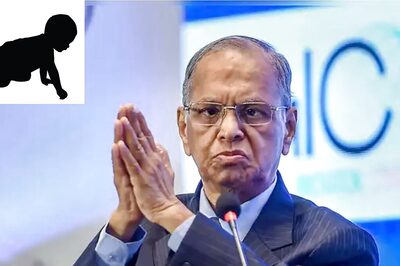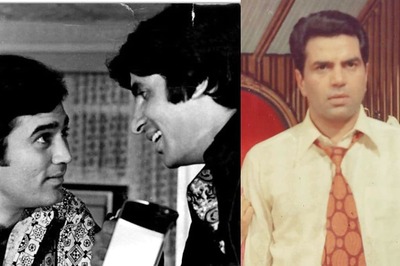
views
Austin: Surveillance. Online privacy. Robots. Food processing. Wearable computers. To get a sense of what's on the minds of the tech industry's thinkers, leaders and tinkerers, it's a good idea to head to Austin, Texas, rather than Silicon Valley this time of the year.
More than 30,000 people descend on this eccentric city for the South By Southwest Interactive Festival (SXSW) each March. This year, NSA leaker Edward Snowden and WikiLeaks founder and secret spiller Julian Assange are topping the bill, alongside Google Chairman Eric Schmidt, Twitter co-founder Biz Stone and Anne Wojcicki, CEO of genetics testing company 23andMe.
Snowden and Assange won't be making the trip to Texas, however. They'll appear on live video, since both are living as fugitives, in Moscow and the Ecuadorian embassy in London, respectively. Their inclusion illustrates how the festival is trying to balance holding on to its independent roots even as it's flooded by a barrage of corporate sponsors and threatens to grow too big for its hometown.
"We have always said that South By Southwest is a very big tent and we have all different types of people," said Hugh Forrest, director of the interactive festival. "This is a feature and not a flaw."
Still, it's clear that online privacy and government surveillance is on top of the technology set's mind this year. Snowden, the former NSA contractor who appears Monday, faces felony charges in the US after revealing the agency's mass surveillance program by leaking thousands of classified documents to media outlets. He is living under temporary asylum in Russia, which has no extradition treaty with the US.
Snowden is unlikely to talk about the case against him during the session and will focus instead on "how technology enables surveillance and how technology can protect us from surveillance," said Christopher Soghoian, principal technologist at the American Civil Liberties Union. Soghoian will be speaking to Snowden along with Snowden's legal adviser, the ACLU's Ben Wizner. Snowden is being represented by the ACLU in the US government's case against him.
Speaking at South By Southwest - rather than in front of Congress or at a conference of lawyers - gives Snowden a chance to talk to the technology community, "his peers," Soghoian said.
"The reason the NSAs collected as much information as it did is because of technology," he said. "Technology got us into this mess and technology will get us out of it."
Assange, meanwhile, will speak on Saturday with Benjamin Palmer, the co-founder of The Barbarian Group, a marketing agency whose clients range from Pepsi to Samsung to New York City. As to why a marketing executive is interviewing a figure as controversial as Assange? A hint: Visitors to the group's website are greeted with the message "We create ideas that provoke a reaction."
Part of the larger South By Southwest festival that also includes music, film and recently education segments, SXSWi, as it's dubbed, became a separate event in 1994, when it was still called "SXSW Multimedia." Past speakers have ranged from the computer scientist and virtual reality pioneer Jaron Lanier in 1997 to investor Mark Cuban in 1999 and Friendster founder Jonathan Abrams in 2004.
This is where Twitter soared from obscurity to the world stage in 2007, where Facebook chief Mark Zuckerberg appeared on stage in 2008 when his site was still the No. 2 online social network behind MySpace and where the location-sharing app Foursquare emerged a year later.
Attendees looking for the next Twitter, Facebook or even Foursquare here, though, might have to dig a bit deeper these days. As the festival evolves and grows bigger each year, it's becoming more difficult - not to mention more expensive - to stand out as the coolest startup or the most useful app.
For Caroline Tien-Spalding, marketing director at imaging firm ArcSoft, the interactive festival is where new ideas percolate.
"You have a lot of things at the very, very beginning. You don't know what's going to make it and what won't," said Tien-Spalding, who is giving a presentation about the future of facial recognition technology, titled "The Good, the Bad & the Ugly," on Tuesday.
Other sessions at the five-day festival include discussions such as "The Next Steve Jobs May Be from Africa," "The Internet of Cars" and "Welcoming the Robot Workforce." On Sunday, Rodrigo Martinez, life sciences chief strategist at the design firm IDEO, will be part of a panel about the future of wearable technology called "The Connected Body - Can We Get Value from Wearables."
The problem, he says, is that the conversations about wearables are being driven by hardware and software rather than the motivations, needs and inspirations of the humans who use them.
"Forget about technology," he said. "What are the things that matter to an individual - and then you design around that."



















Comments
0 comment